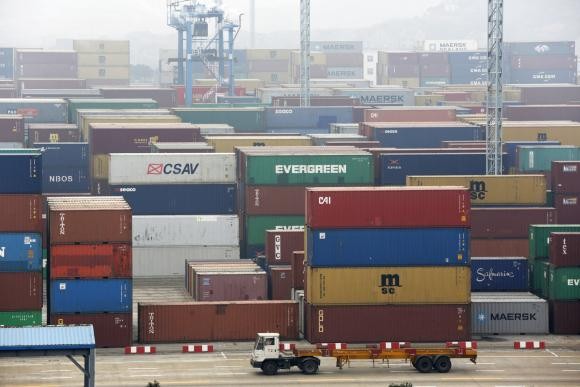The Wall Street Journal was concise in its assessment of China's trade data for January after it was released on Sunday, commenting that a 3.3-percent drop in exports and a 19.9-percent slide in imports from the previous year means that there is "little room for optimism that the world's second-largest economy is starting the year with a head of steam."
The data exceeded the predictions of the analysts in the lead-up to the publication of the results, depicting a far more dire picture than was generally forecast.
According to the General Administration of Customs report, the major drop in China's imports--especially for coal, oil and commodities--resulted in the eastern Asian economy posting a monthly trade surplus of 366.9 billion yuan ($60 billion). The record expansion of the surplus represents a 87.5-percent increase and will lead to an acceleration of the restructuring rate in China.
Zhao Zhongxiu, trade professor at the University of International Business and Economics in Beijing, explained to the media:
"The weak manufacturing activities and a bearish housing market have caused domestic demand for commodities including refined oil, industrial metals and plastics to decline."
The data behind the professor's statement showed that, from the same time period in 2014, coal imports fell by almost 53.2 percent and refined oil was down by 37.6 percent, while steel had dropped by 14.7 percent.
Zhang Ji, director-general of the Department of Foreign Trade at the Ministry of Commerce, said that China may need to face the prospect that the rapid trade growth of the last 30 years could be a remnant of history. Zhang called upon China to "speed up its restructuring of regional trade and value chains," adding that the region needs the stimulation created by China's "free trade agreements and connectivity programs."



























